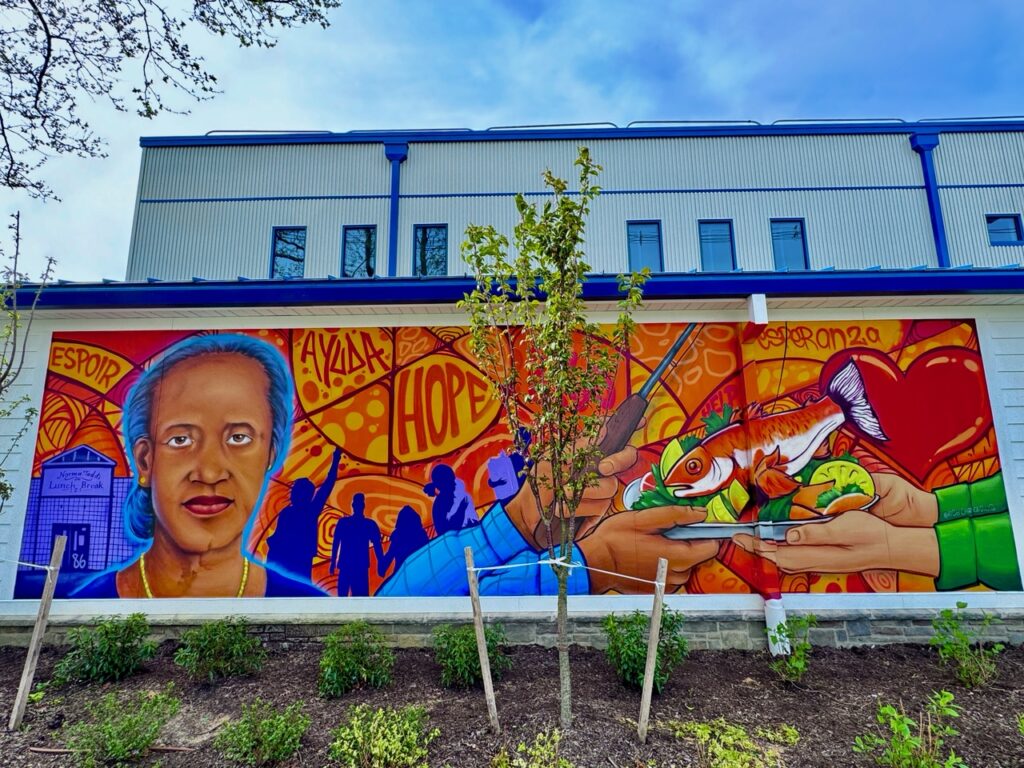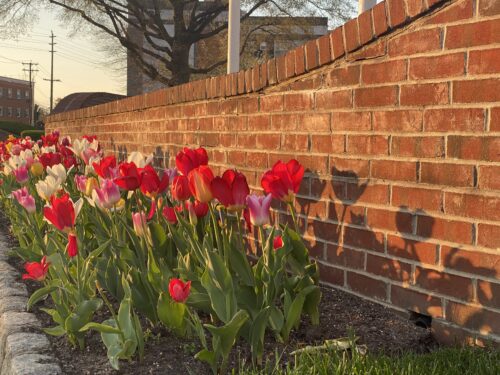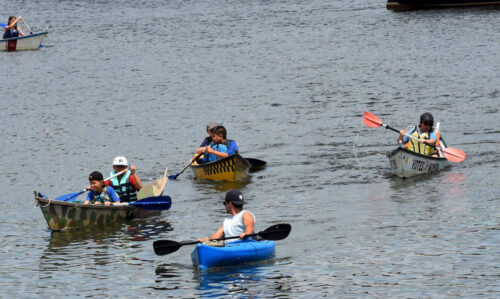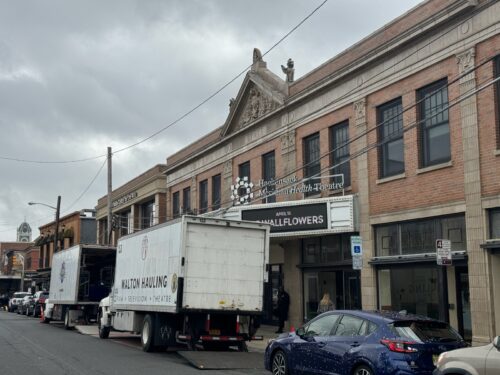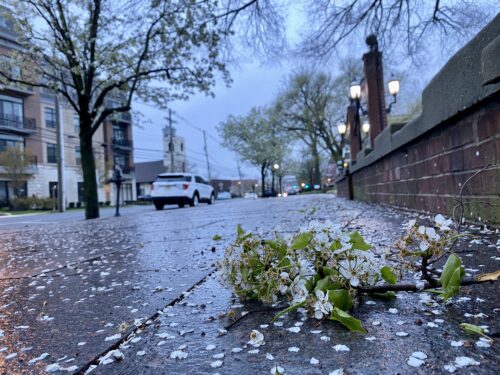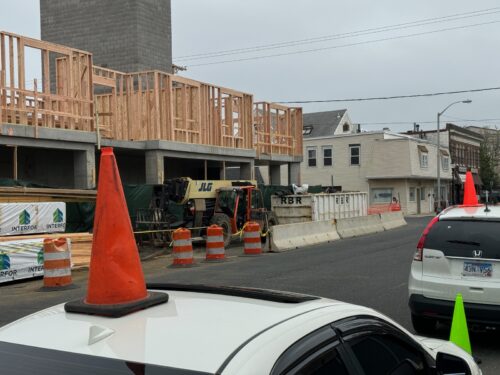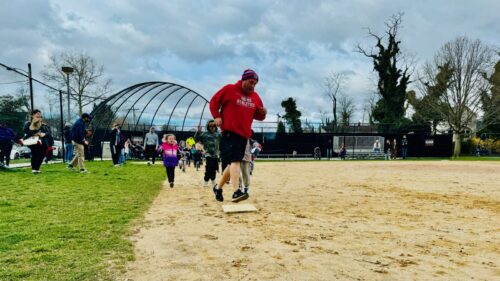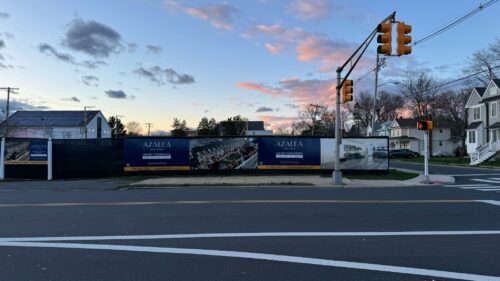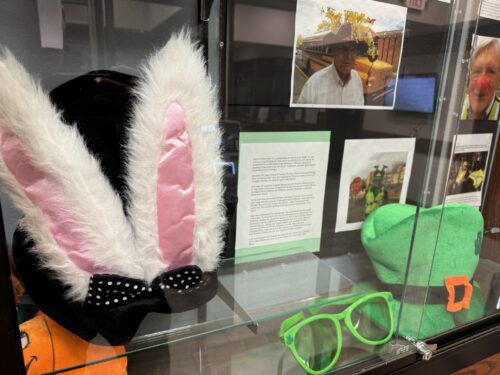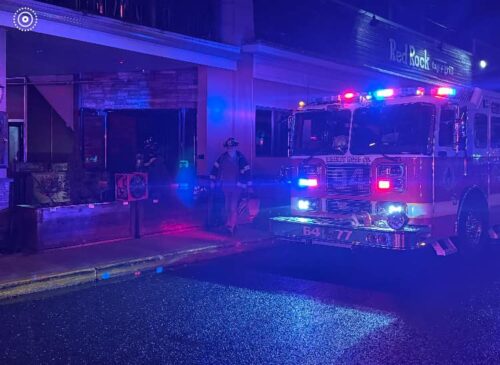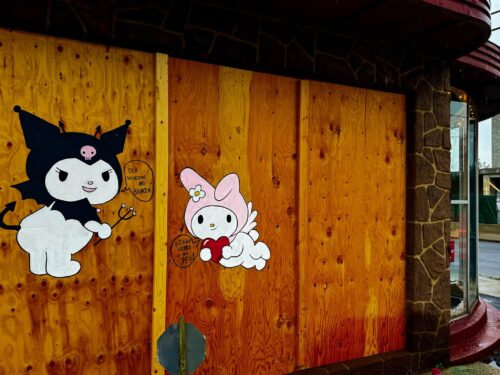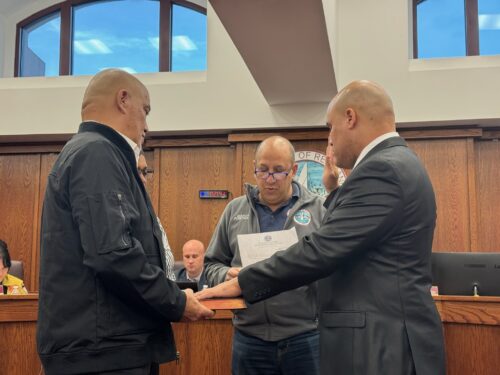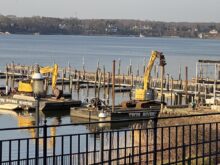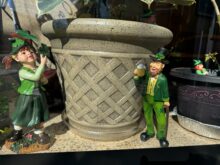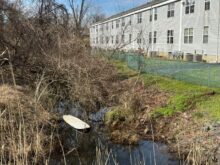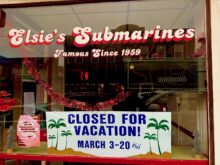When redbankgreen visited Shrewsbury Manor at mid-afternoon Monday, blithely ignoring the orange fencing meant to keep out trespassers, the Independence Day partying was not yet in full swing, but signs of the bash to come were unmistakable.
Both interior courtyards of the apartment complex were dotted with folding tables starting to groan under loads of food and drink. Long-neck bottles chilled in tubs of ice. Four young women played beer pong, a game of startling simplicity in which contestants try to toss a ball into a cupful of beer; when they succeed, their opponents must drink beer. Nearby, a beer-drinking guy exhorted the women to take off their tops when he spotted our camera. They didn’t. Apparently, the combined beer pong scores were still at the level of a World Cup soccer match.
At the river end of the yard, where a grand vista opens out east along the Navesink, Barbara Cottrell sat quietly in the shade in front of her apartment, chatting with passing neighbors and awaiting the start of the fireworks, the latest installment in a long string of July Fourths spent on or near the waterway.
Beginning in the 1950s, Barbara told us, she and her family used to take in the fireworks from their wooden speedboat out on the river. For the past 13 years, she’s had this primo view from the bluffs. She still enjoys the show, which she says has improved greatly over the years.
This one, though, had a bit of a grace note to it for Barbara. Shrewsbury Manor is slated for demolition sometime in late 2007 (see redbankgreens story, above), and by this time next year, Barbara expects she’ll be living in senior citizens housing in Lincroft, depending on how quickly its waiting list gets updated. Shes number 23.
When moving day comes, it’ll be ‘so long’ to the end-unit with windows on three sides and the million-dollar view. It’ll also mean the end of Barbara’s long association with the borough of Red Bank.
Born Barbara Kite in 1920 to parents whod emigrated to Keyport from England just after World War I, she was the third child of six. I was the first one born here in America, to start the colony, she says.
Shes lived a thoroughly American life shaped by the Great Depression, which helped steel her for hardships to come. During World War II, she worked as a secretary in a U.S. Navy office just down Pennsylvania Avenue from the White House. She married a photographer who served in the Navy. He shipped out when she was pregnant with her first child, and didnt see his son until the boy was two years old, having spent most of the intervening months on a submarine photographing the Japanese coast. Later, when the Cottrells moved to Red Bank, he worked as a staff photographer for the National Geographic magazine, and Barbara worked at the public library.
From 1951 to 1983, the Cottrells lived on Rector Place, in a house that had ten rooms and 13-foot ceilings, Barbara says. After a decade at the library, she retired, but was called back into book duty by the Fair Haven Public Library, where she worked for 22 more years before retiring again, this time as the director, and this time for good.
There were some painful losses over the years. Barbara’s daughter, Cheryl, was born with a heart defect, and died at age two-and-a-half in 1959. I feel God made a mistake with her, and he wanted her back, she says. A son, Bruce, had serious kidney problems, and had to move in with her here. For all his challenges, including thrice-weekly dialysis treatments and long confinement to a wheelchair, Bruce never complained about his misfortune, Barbara says, and thanked her for every small favor she did for him. It was always, Thank you, Mom; thanks, Mom, she says. He died in 2002, at age 55.
Another son lives nearby.
Barbara’s marriage ended long ago, and her siblings have passed onall of cancer. She managed to survive a scrape with cancer, in 1988.
Asked about her durability, she says: Well, I seem to be clever.



